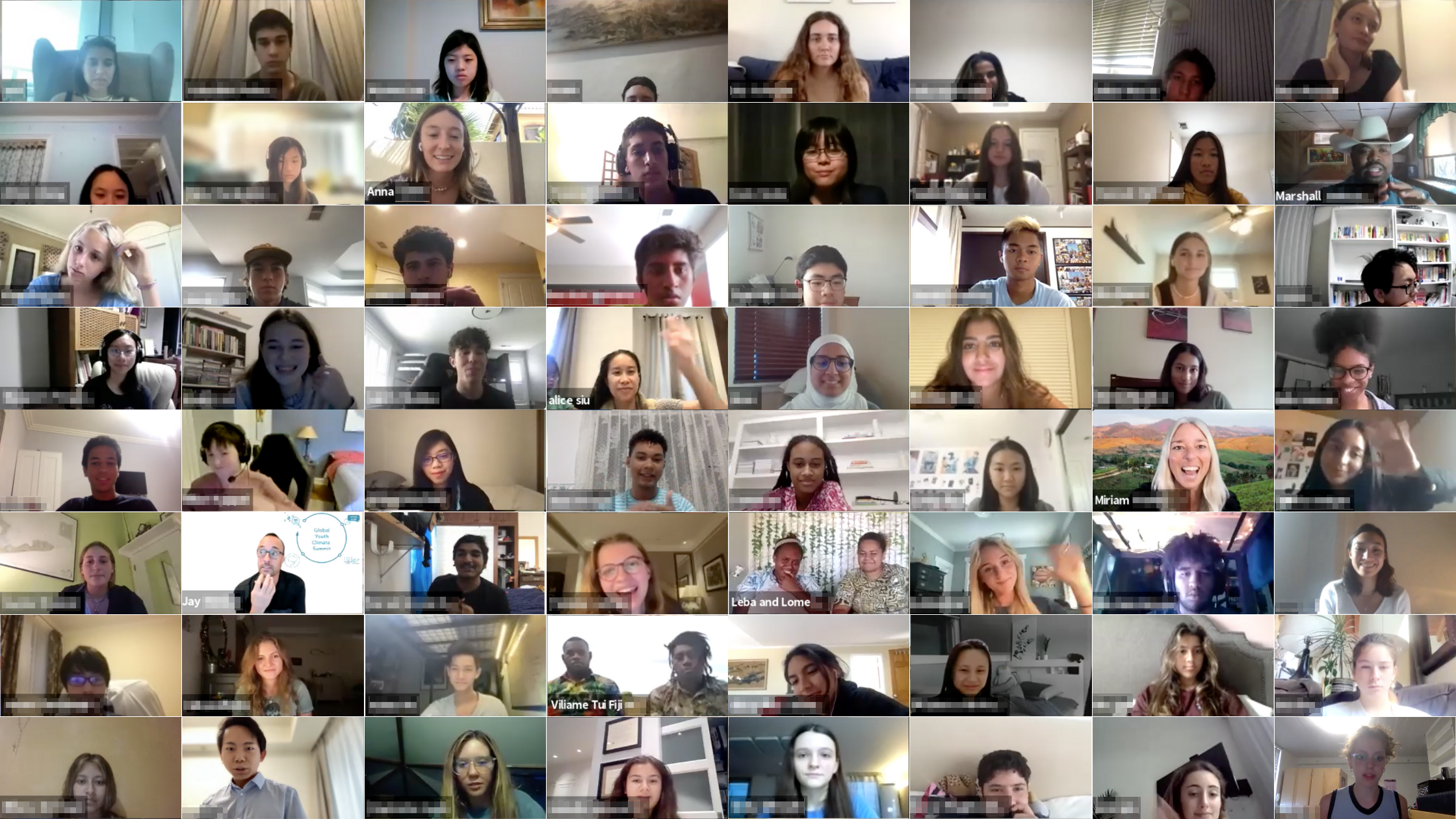MENTOR, OHIO, August 2 2021 – The Global Youth Climate Summit connected students from 21 countries and 18 US states to design innovative solutions to address climate change in Fiji. The group consisted of 92 students whose ages ranged from 12-18 years old. One-third of the students were awarded scholarships by Rustic Pathways to attend the event.
The Global Youth Climate Summit, hosted by Rustic Pathways in partnership with Stanford University’s Center for Deliberative Democracy and Rustic Pathways Foundation, was a two-week design sprint challenge.

Defining the Problem
Rustic Pathways local team in Fiji led sessions to define problems the islands are having as a result of climate change.
When thinking of Fiji, spectacular white sandy beaches may come to mind, but that isn’t the reality everywhere. Rustic Pathways program leader Leba Digitaki grew up on Vanuavatu, a small island in southwest Fiji. The water supply is limited and the islanders rely on green water sources, or collected rainwater.
Rustic Pathways program leader Jerry Driu is from the small village of Nabila, on the coast of the main island Viti Levu. Growing up, he has seen rising sea levels wash away fields and trees. As he stands on what used to be a beach, Driu shows the students the dead white coral and broken tree branches surrounding his feet.
With a chance to see and understand the real Fiji, students dove into action.
Prototypes in Action
Students worked in pods to address issues of access to clean water, rising sea levels, saltwater intrusion, coastal erosion, and extreme weather conditions.
Some of the prototypes created to give clean water access included:
- Desalination/purification plant that uses reverse osmosis on seawater to create drinkable water.
- Fog traps to collect fresh water.
- Desalination plants paired with wave energy technology to convert ocean water into usable clean water.
- Managed Aquifer Recharges (MAR) to collect, filter and store water underground.
- Small desalination devices to individual Fijian families to use on sea water.
To combat rising sea levels, students created prototypes that included:
- Planting mangroves along the shoreline to keep sea water from contaminating groundwater.
- Protecting coastal villages with barrier islands paired with mangrove plantations.
- Changing hard surface roads into permeable surfaces to prevent flooding.
The Rustic Pathways Fiji team was incredibly impressed with the ideas and gave direct feedback to the students after each presentation. Leba says these outside perspectives are really something to be considered. Being so close to the problem for so long, locals sometimes have trouble seeing new options that can work.
Fiji Program Leader Viliame Tui says he feels, in a way, safe knowing these young leaders are taking a stand.
“People across the world are fighting for this cause with us. They are raising awareness and talking about issues we face in the Fiji islands,” Tui said.
Kate Ragatz, who is from Woodside, California, worked on a solution to provide a sustainable energy source through hydropower while also supplying clean drinking water. Her team will work to bring their solution to life by using Wavepiston, a wave energy system.
“Our next steps are to get in touch with the Wavepiston company, find a village or area to implement our idea, contact them, and then hopefully work on executing our Wavepiston plan,” Ragatz said. “For our pod, I felt like stopping at the end of the summit wasn’t even an option. We knew how passionate we were about our idea, and we even spent some of our pod meetings planning on how we would tell the team we were serious about carrying this out.”
A Hopeful Future
16-year-old Julieta Melgar from San Salvador says she wanted to join the program after coming to the realization that she saw social and environmental issues as something completely normal in her country of El Salvador. After the conclusion of the summit, she feels empowered and hopeful.
“It was mind-blowing to see how so many young people like me are willing to come together and act for the future of our world,” said Melgar. “It was an experience we will never forget, with connections and friendships we never wish to break.”
Mahmoud Mogawer from Cairo, Egypt shares these feelings of hopefulness and optimism for the future. Along with these feelings, also comes some sadness of the program coming to an end.
“I was surprised by the interest in all of us as students about the topic discussed and the ability to work together even when time, language, nation and belief divided us,” Mahmoud said. “I never miss a summer camp or anything like that but this time I miss the links and the friendships I made along the way.”
Learn more about the leadership development program.
About Rustic Pathways
Rustic Pathways has been the leader in global teen adventure travel and community service programs since 1983. Through purposeful design, we create culturally-immersive programs for students. We are committed to facilitating positive impact through transformative student experiences that prioritize meaningful community engagement around the world.
Contact
Rustic Pathways
media@rusticpathways.com